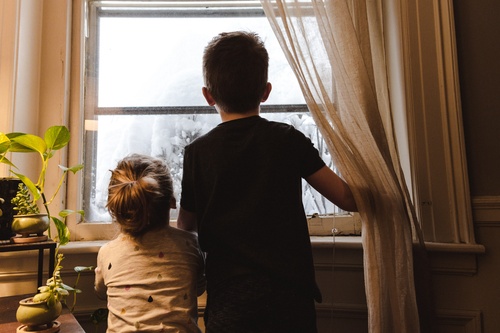The issue of wanting sole and exclusive use of the family home arises during the course of a relationship breakdown. Sometimes the matter can be resolved amicably by one partner agreeing to move out or, where that is not possible, the parties agree to remain ‘separated under one roof’.
However, where the parties cannot agree on their living arrangements, the Court has the power to order that one party can have sole and exclusive use of the former matrimonial home.
Law relating to the sole and exclusive use of the family home
Under s114 of the Family Law Act (Cth), the Family Court has the power to restrain one partner, whether in a married or de facto relationship, from occupying the family home for a period of time. The effect the Court exercising the power is that the unrestrained party enjoys the right of ‘sole occupancy’ of the family home. These orders are by made by way of an injunction and are generally sought on an interim basis.
The Court may make such orders as it thinks ‘proper’. In deciding to make an order in favour of one of the parties, the Family Court will look at a number of factors, including but not limited to;
- whether one partner is the sole owner
- the means and needs of the parties
- the needs of any children
- any hardship to either party or any children
- any conduct which justifies one party being expelled from the family home
The illustrated case below provides an example of the type of evidence that is considered with respect to an injunction being granted. In this case the Court placed considerable weight on the adverse effects the children were suffering from the conflict within the home.
Case Study: Savaree & Elenton [2014] FamCA 38
In this case, the Court considered an application from a wife for the sole and exclusive occupation of the matrimonial home for her and the two children of the marriage.
The wife alleged that the husband was verbally aggressive and abusive over a 5 year period. To a large extent this was uncontested. There was also strong evidence that the parental conflict was adversely affecting the two school-age children. Both the children told independent people, including school counsellors, that they were fearful for the safety of themselves and of their mother if they had to continue to live with the father.
The Family Court held that the needs of the children weighed heavily in its determination of the application for sole occupation. It was considered that the children would be disadvantaged if they had to live again with both parents under one roof. In the prevailing circumstances, there was no realistic prospect that the children would live with their father.
So, what did the court do?
The Court accepted that the order in favour of the wife would create some hardship for the husband even though his circumstances indicated he could nevertheless find alternative accommodation. It was largely the conduct of the husband which caused his wife and their children to wish him to vacate the family home.
While the wife finances meant she could rent alternative accommodation for the children and herself pending a final property settlement, this would require the three of them to relocate compared with just the husband having to find alternative accommodation.
On balance, the Court determined that the wife and children should have the benefit of exclusive occupation of the family home on an interim basis.
By way of contrast, this situation can be compared to a case where an injunction for exclusive occupation was not granted. In Kanelos & Kanelos [2014]FamCA 36 the two parties gave conflicting accounts of family violence. With no independent corroboration it was difficult for the Court to make a determination. In declining to make an order the Court observed that if the wife was fearful of her safety she could always seek an apprehended violence order against the husband.
What does it mean?
As with most family law matters the power to make a sole occupation order is discretionary. In exercising its discretion, it is perhaps unsurprising that the Courts are reluctant to order a party to leave their home against their wishes. But sometimes it is necessary. Ultimately, each case will be determined on its own facts but some general indicators can be discerned:
- Exclusive property orders can be applied for when the parties are still living together, or when one party has vacated the property but would like to return.
- Care needs to be taken in bringing sole occupancy applications to ensure that sufficient evidence is available before the Court for a sole occupancy order to be made.
- Where conflict is having a detrimental effect, particularly on any children, this may be sufficient to tip the balance towards granting an exclusive occupation order. This may be so even if it causes the expelled party some hardship.
- The Court will consider whether the relationship between the parties is such that it would not be reasonable, sensible or practicable to expect them to remain in the home together.
- Even where one partner is the registered owner of the family home that partner will not necessarily be the one entitled to remain in the family home to the exclusion of the other.
- It is not sufficient to exclude one party from the home simply to allow the other party to live more peacefully.
Obtaining a sole or exclusive occupation order is rarely a straightforward matter and should never be used as a tactic in a family dispute. Nevertheless there are occasions when there is no alternative.
Contact our Family Law Lawyers in Sydney, NSW
Szabo & Associates Solicitors are experts in all matters relating to family law. If you are seeking a sole occupancy order and need legal advice about your situation please contact us on T: 02 9158 6507 or complete the online contact form.



